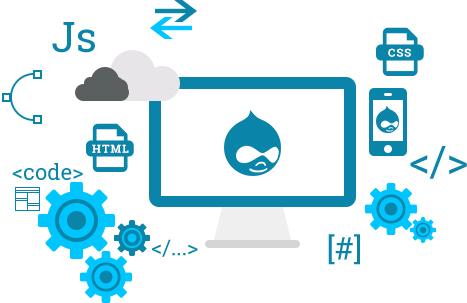
This may be stating the obvious, but keeping website security up-to-date is important for several key reasons. Websites and their content can be vulnerable to many and various cyber threats such as hacking, malware, and phishing attacks to name just a few. By keeping security protocols updated, you can ensure that your site and its content are protected.
Failure to keep your eye on the security ball can result in a breach, which can have a significant impact across all areas of a business. Maintaining tight website protection helps to prevent security loopholes, which can protect your brand and maintain your users’ trust. After all, if a user’s data is compromised, they will be hesitant to use your services again.
There is also a cost saving to be had by spending on security updates. It is often more cost-effective to prevent a security breach than to recover from one. The cost of resuming normal service can include repairing damaged systems, compensating affected customers, and covering expensive legal fees. Protecting your website and content can save you money in the long run.
A secure website is essential for many things such as protecting company data, meeting any potential legal requirements, maintaining your business reputation and providing a positive user experience. It’s important to stay vigilant and keep your site and software up-to-date to ensure the best possible protection against cyber threats.
How Can Newpath Help?
At Newpath we take online security seriously, and we only work with systems that we consider to be the best in the business. As one of the leading Drupal developers in Melbourne, we have worked with this content management system for many years and have significant experience with its features.
Drupal is a flexible system for building websites and web applications and is known for its flexibility, scalability, and security, making it a popular choice for organisations of all sizes. It has several security features to help protect your website and data from potential threats, including the following:
- Access controls: Drupal has a robust system for managing user roles and permissions, which allows you to control who has access to different parts of your website and what actions they can perform.
- Two-factor authentication: Drupal supports two-factor authentication, which provides an additional layer of security by requiring users to enter a unique code in addition to their password.
- Secure coding practices: Drupal’s code is developed using secure coding practices, which helps to prevent vulnerabilities such as cross-site scripting (XSS) and SQL injection attacks.
- User session management: Drupal’s user session management system helps to prevent session hijacking and other types of attacks by managing user sessions and expiring them after a period of inactivity.
- Encryption: Drupal supports encryption of sensitive data such as passwords and user information, which helps to protect this data from unauthorised access.
- Third-party integrations: Drupal supports integration with third-party security tools and services, such as firewalls and intrusion detection systems, to provide additional layers of security.
- Security updates: Drupal regularly releases security updates to address known vulnerabilities and protect your website from potential threats. It’s important to keep your Drupal installation up-to-date to ensure that you have the latest security patches.
These significant security features make Drupal a secure platform for building websites and managing content. However, it’s important to note that security is a shared responsibility between the website owner, developers, and the hosting provider. It’s important to follow best practices and keep your website and software up-to-date to ensure the best possible protection against the ever changing nature of cyber threats.
Extra Steps
If you want to go one step further, use an external provider to add an extra layer of security. Cloudflare is a content delivery network (CDN) and distributed DNS service that provides website security, performance, and reliability services. It was founded in 2009 and has since grown to become one of the largest and most well-known CDN providers in the world, serving millions of websites and web applications. Newpath is a Cloudflare partner and we offer configuration and management.
It provides a range of services, including:
– CDN: CDN caches website content on its global network of servers, which can help to improve website performance and reduce server load.
– DDoS protection: Cloudflare provides protection against distributed denial of service (DDoS) attacks, which are designed to overwhelm websites with traffic and take them offline.
– Web application firewall (WAF): WAF helps to protect websites from common web application vulnerabilities, such as SQL injection and cross-site scripting (XSS) attacks.
– SSL/TLS encryption: Cloudflare provides SSL/TLS encryption for websites, which helps to protect user data and prevent unauthorised access.
– DNS management: Cloudflare provides a distributed DNS service that can help to improve website speed and reliability by routing traffic to the nearest server.
– These services are available on a subscription basis, with pricing based on the features and usage levels needed by each customer. It offers a free plan with basic features, as well as several paid plans with additional features and support.
Cloudflare provides a range of options that can help to improve website performance, security, and reliability. Its global network of servers, DDoS protection, WAF, SSL/TLS encryption, and DNS management services make it a popular choice for website owners and web developers.
Where Should Security Consideration Start?
Security should be considered throughout the entire development process, starting from the initial planning phase and continuing through web design, web development, testing, deployment, and maintenance. Security should be an integral part of the software development process rather than an afterthought that is addressed at the end of the development cycle.
Some key steps in integrating security into software development include:
Risk assessment: Identifying potential security risks and vulnerabilities early in the development process can help prevent security issues down the line. This can involve conducting a security risk assessment to identify potential threats, and developing a risk management plan to address these threats.
Secure design: Building security into the software design phase involves making decisions about the software’s architecture, data storage, and user access controls with security in mind. Secure coding practices, such as using input validation and avoiding hard-coded passwords, should also be considered during the design phase.
Secure coding: Developers should follow secure coding practices to avoid introducing vulnerabilities during the coding phase. This includes using secure coding standards, avoiding common coding errors, and conducting code reviews to identify and fix potential issues.
Security testing: Security testing should be performed throughout the development process to identify vulnerabilities and ensure that security requirements are met. This can include testing for common vulnerabilities, such as SQL injection and cross-site scripting (XSS), as well as testing for compliance with security standards and regulations.
Deployment and maintenance: Security should also be considered during deployment and maintenance. This includes using secure configuration settings, monitoring for security issues, and patching known vulnerabilities.
By integrating security into the software development process from the beginning, organizations can minimise security risks and improve the overall security of their software applications.
At Newpath we take security seriously. So much so that we have a security team inside our DevOps department, dedicated to the security of solutions we build, manage and care for on behalf of our clients.





